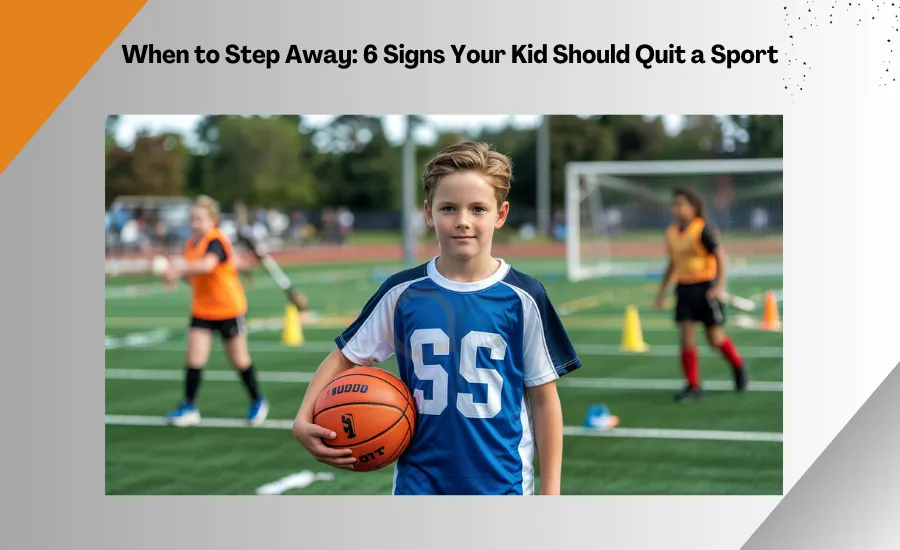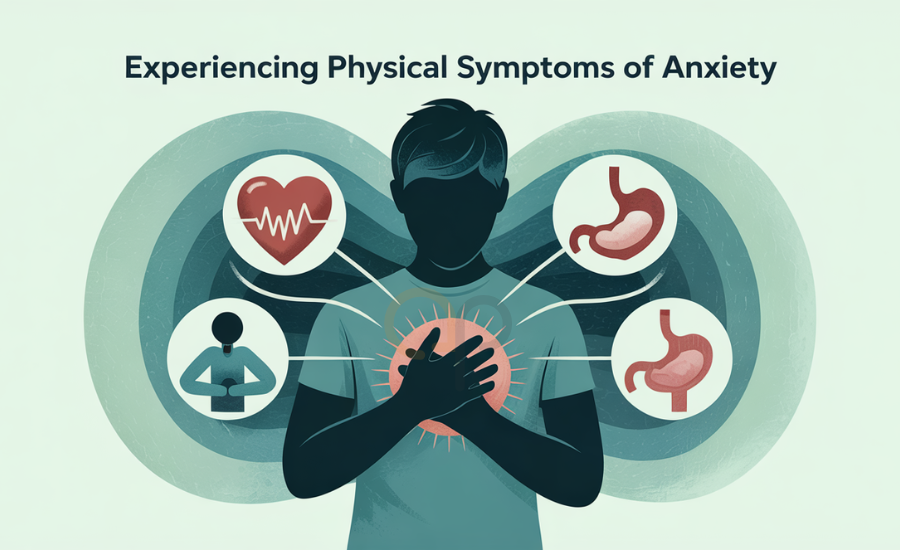When to Step Away: 6 Signs Your Kid Should Quit a Sport

Know When It’s Time to Step Back
Considering when to step back is important for a child’s bright future."The American Academy of Pediatrics reports that by the age of 13, around 70% of children stop participating in sports."In this blog, we will discuss 6 signs your kid should quit a sport.
This action highlights the increasing problems often driven by internal pressures. Asia Mape’s visiting feature, Burnout on ilovetowatchyouplay.com, insists that academic demands, puberty, and shifting social priorities naturally alter a child’s interests. These transitions are common, but when matched with excessive pressure in the role, they can lead to dangerous burnout. Burnout isn’t only about losing interest. It is proven through emotional and physical problems such as anxiety, fatigue, and irritability.
Your Child May Need to Quit: Emotional Signs
Changes in emotions can be an obvious indicator that it’s time to research your child’s interests in sports. While occasional downs and ups are normal, constant emotional struggles may signal deeper problems. Knowing these signs early can help prevent burnout or long-term stress.
Dealing with needless anxiety
Anxiety is common among young athletes, but when it becomes extreme, it’s a red flag. Symptoms such as pre-game insomnia, nausea, or stomach aches can indicate extra stress. Dr. Jay Cavanaugh explains that these physical responses are often triggered by pressure to succeed, whether it comes from coaches, teammates, or even parents.
If your child is constantly anxious about games or practice, it’s worth addressing. Ignoring these marks can lead to further severe emotional challenges down the line.
Lack of Motivation or Sudden Disinterest
A rapid loss of emotion for sports can be a mark of burnout. For example, a child who once liked to practice might now “forget” to avoid discussing games or schedules. So this isn’t only an alternate slump—it's to prevent disconnection that needs attention. Studies indicate that one in five children begin playing sports primarily to meet their parents' expectations.
If your child seems unlikable, it’s important to explain whether they’re playing with others or for themselves.
Emotional Distress and Mood Swings
Emotional distress often manifests as tearfulness, irritability, or mood swings after games or practice. So, these reactions can describe that the pressure of sports is taking a toll. For example, a previously beautiful child might become easily frustrated. So, parents and coaches play an important role in shaping a child’s experience. So, if your child’s emotional well-being is permanently affected, it may be time to step back.
Physical Indicators That It’s Time to Quit
In a child, physical changes can often explain underlying problems with their sports involvement. While minor injuries or occasional injuries are common, constant physical pain may cause excessive stress or signal burnout. Knowing these signs early can guide parents to address the issues before they escalate.
Experiencing Physical Symptoms of Anxiety

Anxiety doesn’t only affect the mind—it can affect you physically. Children under pressure may experience stomach aches, headaches, or even nausea before games or
practices. So, these remarks are often linked to the stress of performance from teammates, coaches, or parents. Ignoring these signs can lead to further severe health problems. So if your child often complains of physical discomfort related to their sport, it’s time to look after their health.
Constant Fatigue or Frequent Illness
Constant stress weakens, making children more prone to colds, the immune system, infections, or prolonged fatigue. While it’s normal to feel tired after practice, exhaustion that interferes with daily activities or schoolwork is a red flag. For instance, a child who is permanently too tired to focus on missing school or class due to illness may be experiencing burnout. This is an exact mark that their body is struggling to keep up with the recommendations of their sport.
Exaggerating Injuries or Ailments
Some children may amplify claims or injuries to have a “mystery” illness to avoid games or practices. Shannon Cleary, a youth sports expert, notes that this behavior is often a coping mechanism for avoiding pressure or stress.
Searching for the root cause can help determine whether it’s time for the child to step back from the sport or their team.
Social and Behavioral Red Flags
Behavioral and social changes can explain deeper problems in a child’s sports experience. While disagreements or occasional mood swings are consistent, normal patterns of negativity or detachment may signal an issue. Recognizing these red flags early can guide parents to take action before the condition escalates.
Detachment from the Team
One of the most vital marks is when a child begins isolating themselves from their team. They might remain alone during breaks, show little interest, or avoid team events in group activities. This division can be a precursor to further dangerous problems like substance or self-harm abuse, according to recent studies. Parents should pay attention if their child seems disconnected from them. Close communication can help uncover the root cause of this attitude.
Negative Attitude Toward Coaches or Teammates
Contrary remarks about teammates and coaches, such as “Coach hates me” or “No one listens to me,” are potential red flags. These comments often reflect underlying dissatisfaction or frustration with the sport.
Dr. Jay Cavanaugh recommends that such negativity can stem from unrealistic hopes or extra pressure. Addressing these concerns early can prevent long-term displeasure.
Conclusion: Parents Living Vicariously Through Their Kids
Research shows that 20% of youth athletes feel pressured to roll because their parents are living seriously through them. When parents register reminders over their child’s joy, it can lead to resentment and burnout. Instead of focusing on parents, winners should encourage their children to enjoy the process. Resources like ilovetowatchyouplay.com allow important insights for reframing parental roles in sports.
FAQs
How can I tell if my peer is experiencing too much anxiety from sports?
Observe symptoms such as persistent insomnia, anxiety, or resistance to training. These attitudes might show the pressure to be excessive.
If my child loses interest in their sport, what should I do?
Warned them of their emotions. Trying a break or breaking into a fresh activity can sometimes help to rekindle their enthusiasm.
Are mood swings a reason to consider quitting?
Yes, often, emotional distress, mood distress, or swings linked to sports could mean it’s time to rearrange their inclusion.
Can physical symptoms like fatigue signal a problem?
Permanent, frequent, and tired illnesses may suggest overtraining or stress overtraining. It’s important to describe these difficulties early.
What if my child exacerbates injuries to avoid playing?
This could be a sign they’re overwhelmed or happy. Open communication can guide and uncover the root cause.
How do I handle detachment from the team?
Encourage your child to share their feelings. It might be time to explore other interests if they feel disconnected.